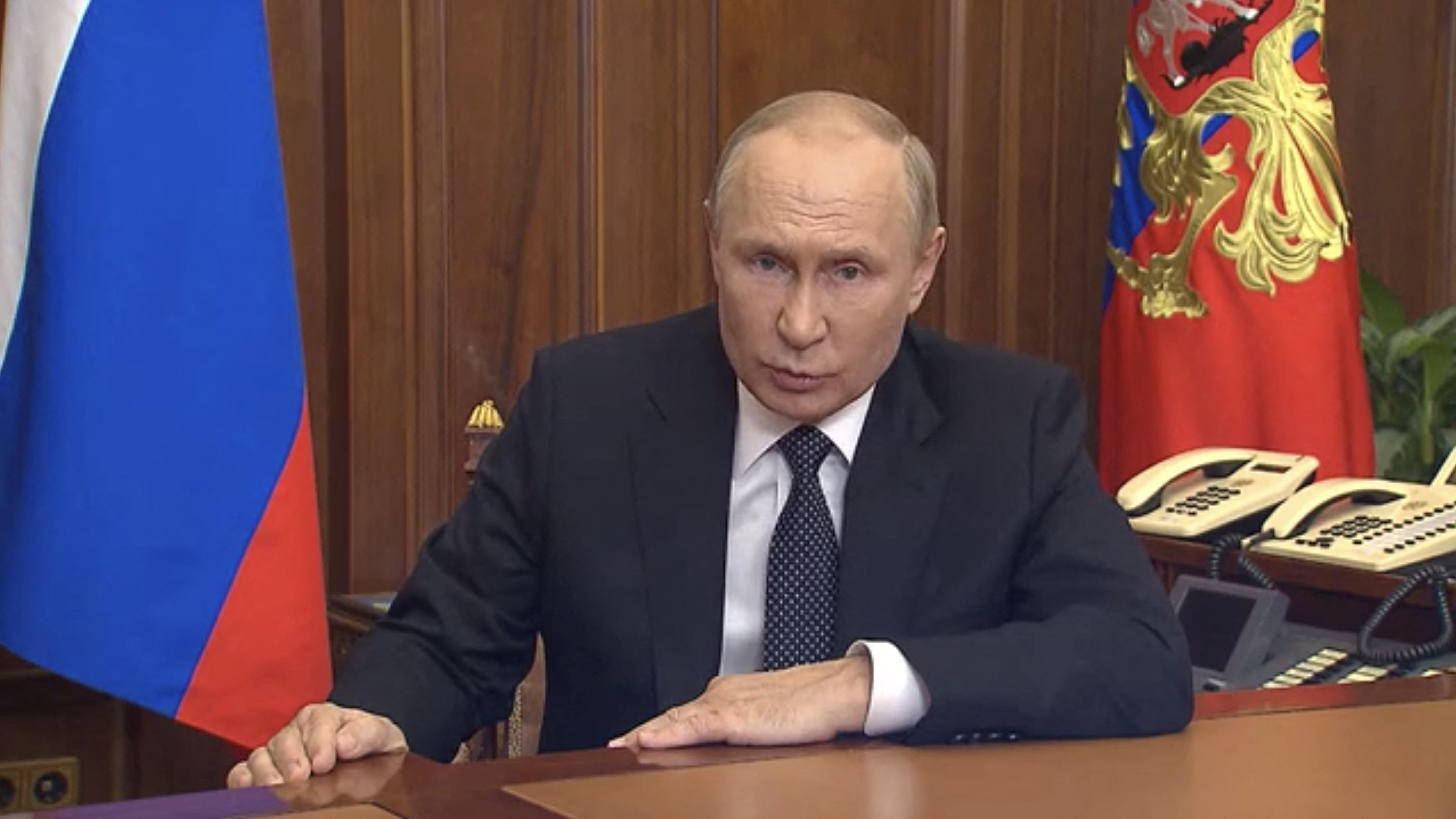President Vladimir Putin ordered a Russian mobilisation to fight in Ukraine on Wednesday and made a thinly veiled threat to use nuclear weapons, in what NATO called a “reckless” act of desperation in the face of Russia’s looming defeat.
Flights out of Russia quickly sold out following the announcement of the country’s first military mobilisation since World War Two, a dramatic reversal after months in which Moscow had insisted its operation was “going to plan”.
In a country that counts millions of former conscripts as reservists, Putin’s decree on “partial mobilisation” did not spell out who would be called up.
Defence Secretary Sergei Shoigu said 300,000 people would be mobilised out of a pool of 25 million. The contracts of professional soldiers would be extended indefinitely.
In his televised address, Putin effectively announced plans to annex four Ukrainian regions, saying Moscow would facilitate referendums in Ukraine’s Luhansk, Donetsk, Zaporizhzhia and Kherson regions on joining Russia. A day earlier, Russian-installed officials in the four regions announced plans for such votes this week, which Western countries denounced as shams.
Putin said, with no evidence, that officials in NATO states had threatened to use nuclear weapons against Russia but that Russia “also has various means of destruction”.
“When the territorial integrity of our country is threatened, we will certainly use all the means at our disposal to protect Russia and our people. It’s not a bluff,” he said.
Ukrainian President Volodymyr Zelenskiy said he thought Putin would be unlikely to use nuclear weapons but that the threat showed why it was important to stand up to him.
“I don’t believe that he will use these weapons. I don’t think the world will allow him to use these weapons,” Zelenskiy said in remarks reported by Germany’s Bild newspaper.
“Tomorrow Putin can say: ‘Apart from Ukraine, we also want a part of Poland, otherwise we will use nuclear weapons.’ We cannot make these compromises,” Zelenskiy said.
DANGEROUS AND RECKLESS
In an interview with Reuters, NATO Secretary-General Jens Stoltenberg denounced Putin’s threat to use nuclear weapons as “dangerous and reckless rhetoric”. The mobilisation plan demonstrated “that the war is not going according to his plans”.
As for any potential Russian use of nuclear arms, “We will make sure that there is no misunderstanding in Moscow about exactly how we will react,” Stoltenberg said. “The most important thing is to prevent that from happening and that is why we have been so clear in our communications with Russia about the unprecedented consequences.”
Bridget Brink, the U.S. ambassador to Ukraine, said the United States would never recognise Russian claims to annex Ukrainian territory.
“Sham referenda and mobilization are signs of weakness, of Russian failure,” she said on Twitter.
Putin’s announcement came after weeks in which Russia’s invasion force was routed in northeastern Ukraine, with thousands of Russian troops fleeing frontline positions in the biggest shift in momentum since the war’s early weeks.
Ukrainian forces have captured some of the main supply routes that had served Russia’s front line in the east, and say they are now poised to push deeper into territory that Moscow had captured over months of heavy fighting.
“No amount of threats and propaganda can hide the fact that Ukraine is winning this war, the international community are united and Russia is becoming a global pariah,” said British Defence Secretary Ben Wallace.
Zelenskiy adviser Mykhailo Podolyak called Putin’s address an “absolutely predictable appeal, which looks more like an attempt to justify their own failure”.
“The war is clearly not going according to Russia’s scenario and therefore required Putin to make extremely unpopular decisions to mobilise and severely restrict the rights of people,” Podolyak told Reuters in a text message.
Several Western military experts said drafting in hundreds of thousands of new troops would take months, do little to slow Russia’s losses, and could even make matters worse by drawing resources away from the battlefield to train and equip recruits.
“Jaw-dropping. A new sign of RU weakness,” tweeted Mark Hertling, a former commander of U.S. ground forces in Europe. “Placing ‘newbies’ on a front line that has been mauled, has low morale & who don’t want to be there portends more RU disaster.”







Click here to change your cookie preferences